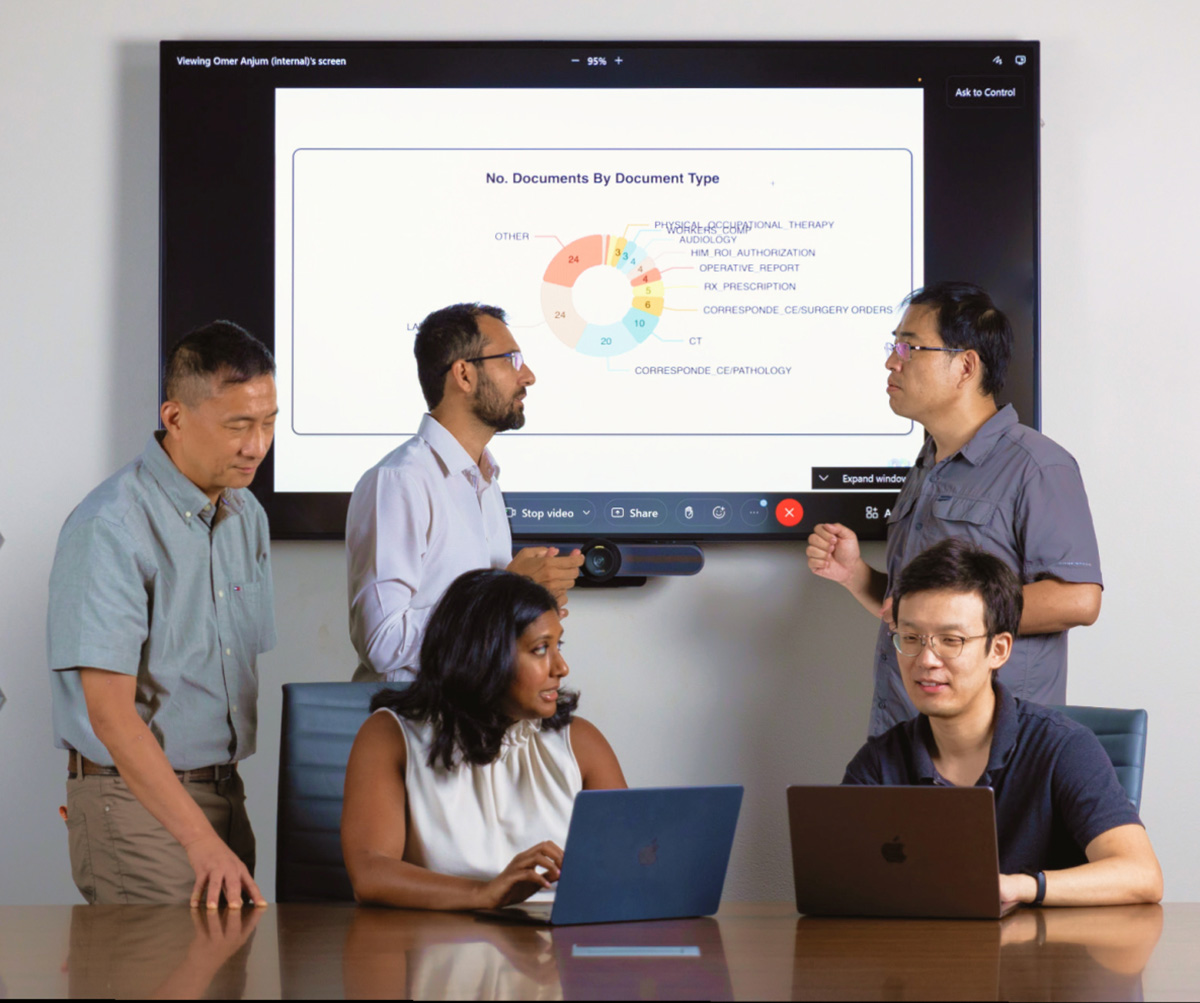Building on the momentum of its integrated electronic health record (EHR) and revenue cycle system, UTHealth Houston leaders announced in May 2023 a new center that will continue to fuel innovation in digital health care for patients, health care professionals, and researchers.
"The UTHealth Houston Center for Digital Healthcare Innovation will allow our schools to work together to innovate, to advance how we use our electronic health record system, and to increase user satisfaction," said Babatope O. Fatuyi, MD, chief medical information officer and chair of the center's steering committee. "We will be improving tools, and creating new ones to improve medicine for tomorrow."
Key accomplishments will include a comprehensive approach with stakeholders from clinics, hospitals, and multiple schools; information sharing and prioritization; professional development for faculty; and strategies driven by the tripartite mission of clinical care, research, and education.
The ultimate goal is to become the best EHR in Texas, leveraging the expertise of faculty across the university to break down barriers and seek novel, practical applications of clinical technology, said Martin J. Citardi, MD, vice dean for clinical technology at McGovern Medical School at UTHealth Houston and director of the new center.
The center is driven in part by members of a physician builder and informatics program who are certified by Epic and who dedicate a significant amount of time to Epic-related projects. Projects focus on charge capture, patient access, documentation improvement, user experience, and physician satisfaction, as well as a strategy that builds a digital front door for clinical operations.


UTHealth Houston launched its largest IT project in history - migrating to Epic's electronic health record (EHR) and revenue cycle system - just as the COVID-19 pandemic began.
Epic provides a more robust patient portal that allows for online scheduling, communication with the care team, and quicker delivery of lab results. It also delivers enhanced linkage with other health care organizations, so the relevant health data is shared in real time.
IT established the new EHR while decommissioning the old system, providing access to more than 1,700 physicians and more than 3 million patients. UTHealth Houston was one of the pioneering organizations in the nation to carry out the bulk of the Epic implementation work in the middle of a pandemic, and in May 2021, the university earned 9 out of 10 Gold Stars when it launched.
In a testament to the grit of the UTHealth Houston community and an unwavering commitment to its mission, the pandemic's many challenges never slowed the project, as the university hit all of its timeline-to-implementation targets.
Prior to the COVID-19 pandemic, the university had only dabbled in telehealth. But, in order to launch a platform practice-wide, UTHealth Houston quickly rolled out a small telemedicine pilot program in April 2020.
The program grew to include 2,500 clinicians and clinical staff accessing the telemedicine platform and hosting about 5,000 virtual appointments per month. It went from a novelty to the norm. At one point, some of the health care professionals at UT Physicians were seeing nearly 100% of their patients online.
The platform has since settled into its own niche, accounting for 15%-20% of primary care visits. As the field of telehealth continues to evolve, the university anticipates it will be more widely used for chronic disease management, mental health, and patients with minor symptoms.
The goal is for UTHealth Houston to provide the same exceptional, compassionate, and comprehensive care during a telehealth visit - just as patients would receive during an in-person visit.